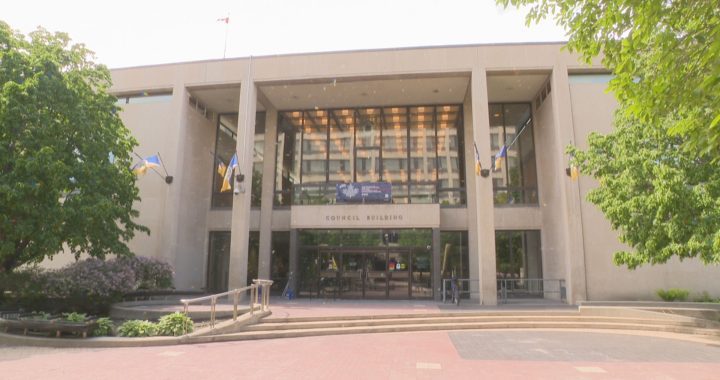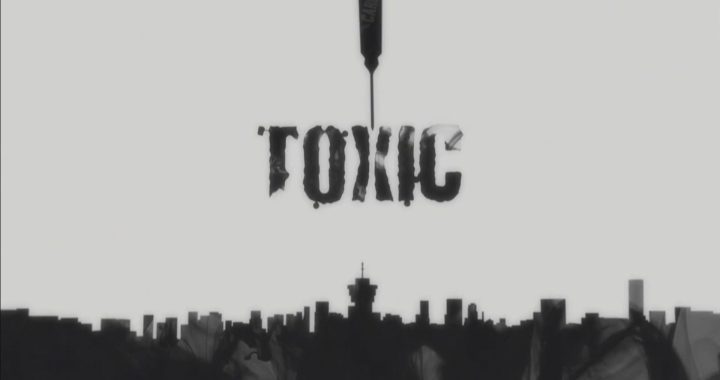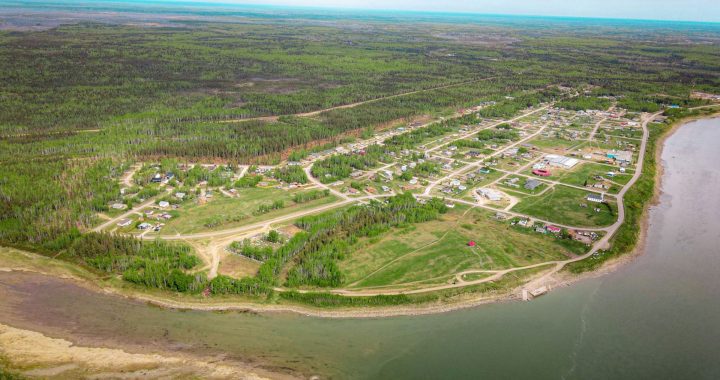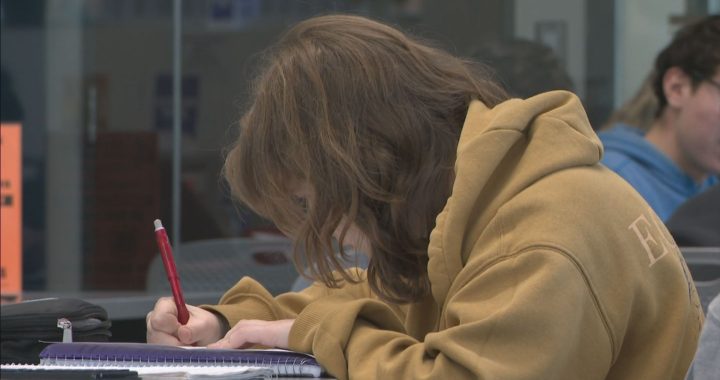The family of Breanna Menacho gave their victim impact statements ahead of the verdict for the man convicted of killing the 22-year-old.
“Bree was a hugger,” said Menacho’s mother, Lisa Zoe, as a photo of her daughter was displayed in the Yellowknife courtroom. “We are the prisoners now, we are the ones suffering.
“She made you feel so special, loved and acknowledged.”
Menacho, a Dene woman who grew up in Yellowknife, Edzo and Tulita, was remembered as a kind, generous and funny person who lit up rooms.
Zoe and her husband, along with other relatives, wore shirts bearing a red handprint and the message #justiceforBre.
The grieving mother outlined the anxiety she’s felt since her daughter’s murder. She said she lives in fear of the killer’s potential return to Yellowknife.
“My 10-year-old son who, to this day, does not know how his sister died, and one day I am going to have to sit this little boy down and explain to him,” she told NWT Supreme Court.
Devon Labrabie, 31, killed Menacho on May 5, 2020. He pleaded guilty to second-degree murder in November 2023, which comes with an automatic life sentence.
“I feel like our whole life has revolved around Devon,” Zoe said. “We support our Indigenous criminals, but what about our Indigenous victims?”
Ten additional victim impact statements from family members and friends were presented in court. The emotional statements were filled with admiration, despair and disbelief at the loss they’ve suffered.
Some family members from different parts of the Northwest Territories were able to listen to the sentencing hearing remotely. Menacho’s father, David Menacho from Tulita, described how the lengthy court process has impacted him and his family.
“The question that haunts me every day is why my innocent daughter, why was she taken so young and so innocent?”
David said he still has the texts he sent his daughter in May of 2020 asking where she was.
“No amount of time in jail will bring back my Breanna,” he added.
Others labelled the horrific murder “evil and heartless,” “senseless” and something that “scars the mind.”
Melva Mantla, Breanna’s cousin, expressed her fear of retaliation from Labarie after seeing a Facebook post in May 2023 while he was in custody.
The post read, “Can’t wait to get out of this awful jail … best be ready for round two.”
The murder
According to an agreed statement of facts, Breanna was sitting next to Larabie on a couch in his living room when he suddenly attacked her with a hatchet, striking her several times.
He ordered all five people in the apartment to stay, but three fled. Larabie then left the apartment and went to a nearby acquaintance, confessing what he had done.
Shortly after the murder, Jordan Nande and Lisa Brule pleaded guilty to being accessories after the fact. Both were sentenced to 10 months in prison and two years of probation for helping Larabie try to evade responsibility.
According to the agreed statement of facts, Larabie had been on a binge involving alcohol and crack cocaine leading up to the murder. After committing the crime, he attempted to conceal what happened by placing Breanna’s body in a chest freezer.
He intended to dispose of her body and any incriminating evidence.
Crown prosecutor Blair McPherson said there was no clear motive for the attack. He described it as an extreme act of senseless violence, noting Breanna did not provoke Larabie, was unarmed and posed no threat.
Justice David Gates called the circumstances “bizarre” and “difficult to understand.”
In Canada, individuals convicted of second-degree murder must serve 10 to 25 years in prison before they are eligible for parole.
Both the prosecution and defence agreed on a joint sentencing submission that Larabie serve 10 years before being eligible for parole. They also requested a DNA order and firearms prohibition.
McPherson said both parties found the sentence fair and just, considering the “horrifying circumstances of the murder and its aftermath.”
At that time, Larabie was on a release order and told not to consume any substances or have knives or sharp-edged weapons.
Defense lawyer Michael Spratt said Larabie had no prior criminal record, acknowledged his responsibility for the murder, expressed remorse, and had made efforts to improve his life while at North Slave Correctional Complex.
McPherson told the court Larabie’s guilty plea saved the court time and resources, and most importantly spared the witnesses from testifying.
He said, “at first blush, you would think five witnesses is a good case for the Crown, but by the fall of 2023 there were challenges with the witnesses.”
All of them have struggled since the murder.
One witness died by suicide, another has been missing for approximately two years and is presumed dead, a third refused to talk, the fourth lived in Toronto and was struggling, while the last witness who did talk lives with substance abuse and mental health issues.
Gates reminded both parties that Larabie’s guilty plea came late in the court process. Larabie initially pleaded guilty to manslaughter, but the Crown did not accept the lesser charge.
Spratt ran through the pre-sentence report, a document prepared in a similar manner to a Gladue report.
“I have never seen in 20 years of practice someone who suffered what Mr Larabie suffered as a child,” Spratt said.
Larabie lives with fetal alcohol syndrome and addictions, and Spratt reminded the court Larabie is a first-time Indigenous offender who has taken programming, completed his GED and earned several certificates over the last four years.
The defence said Larabie doesn’t know why he murdered Breanna, and “he himself is confused as to why this happened.”
Gates said, “In some respects, it makes him more dangerous because he snaps and he killed a perfectly innocent young woman.”
A sentence is expected the afternoon of May 23.









